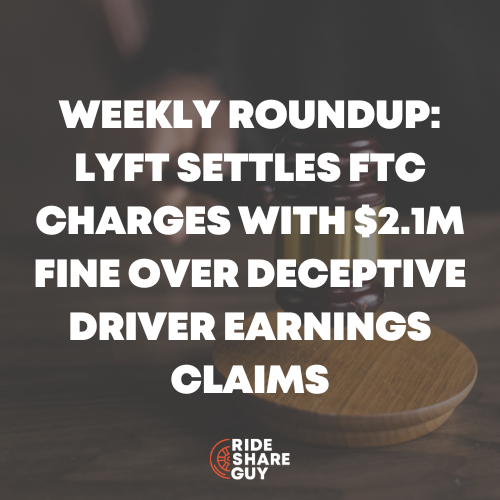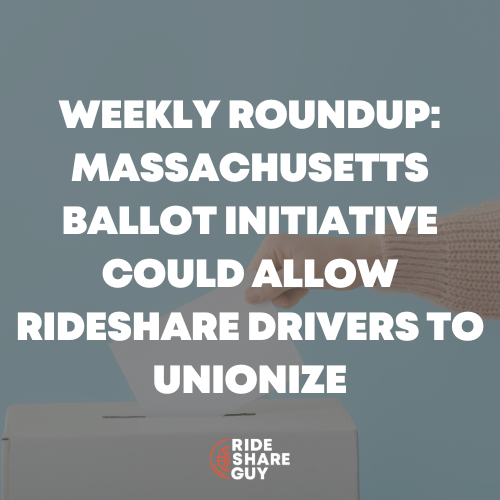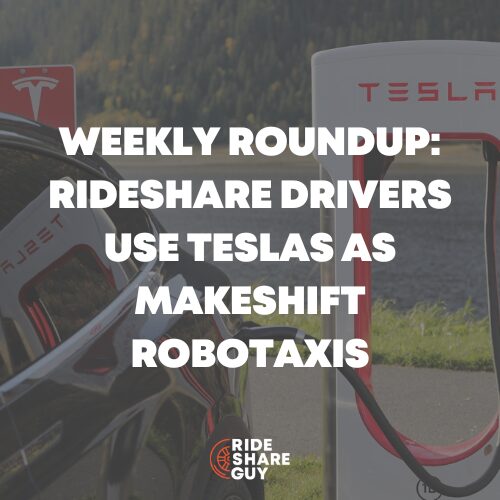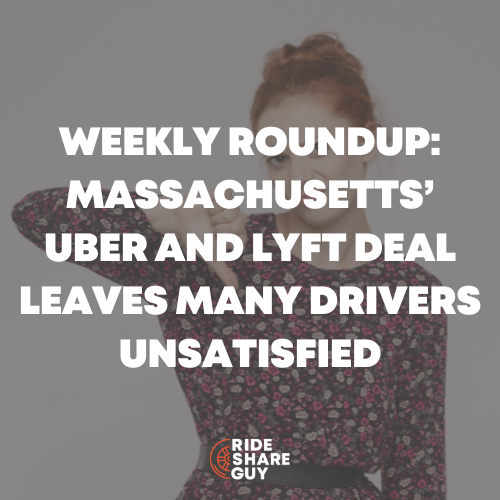In this week’s Roundup, we look at Lyft’s new compensation policy for unexpected delays, the agreement struck between Uber, Lyft, and NYC regulators to address driver lockouts, and DoorDash’s impressive Q2 results.
We also explore Uber’s partnership with BYD to expand its electric vehicle fleet and the potential implications of the FTC’s probe into surveillance pricing for gig economy companies.
Lyft to Start Compensating Drivers for Unexpected Delays 🚗💰⏰
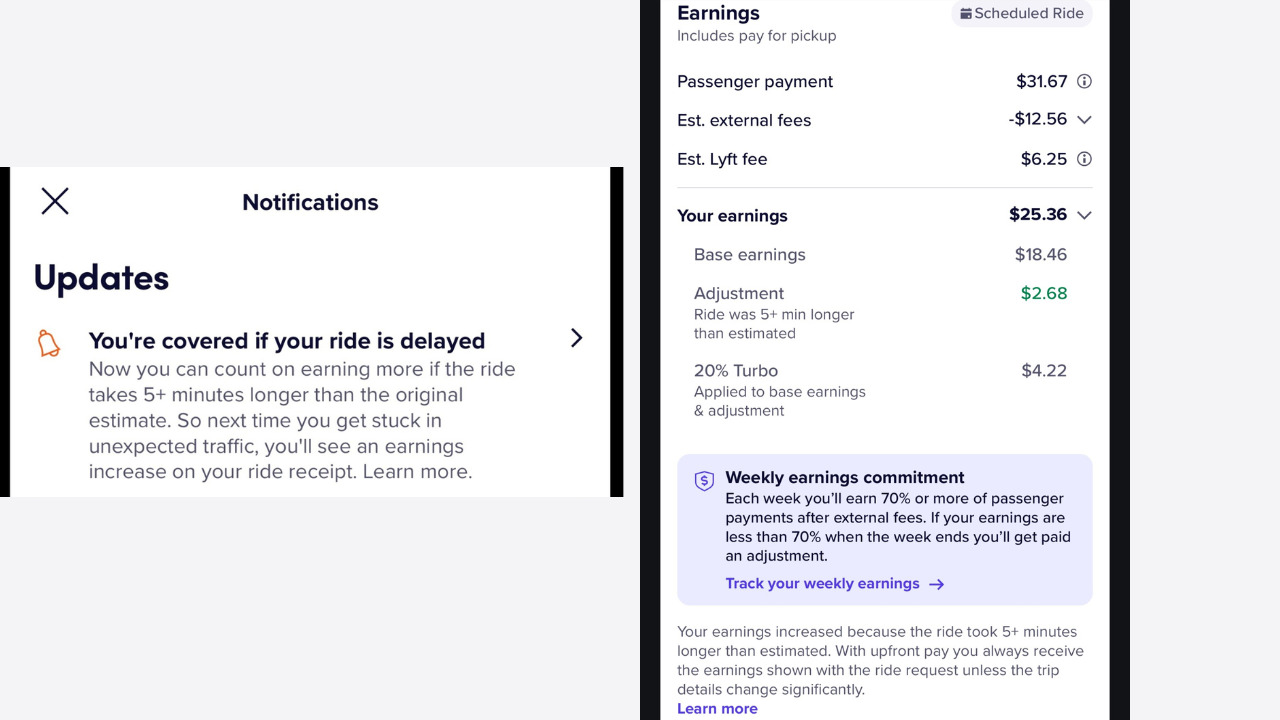
SOURCE – Show Me The Money Club
According to screenshots obtained by Show Me the Money Club, Lyft is in the midst of rolling out a new policy that will address the issue of unpaid time due to unexpected delays. The rideshare company will now pay drivers more if a ride takes more than 5 minutes longer than the original upfront fare estimate.
- This change aims to compensate drivers for time spent in traffic, accidents, or navigating closed roads, which was previously unpaid after upfront fares were rolled out.
- While upfront fares allow drivers to see the passenger’s destination, the fares do not account for unexpected delays on the road, such as traffic, accidents, or road closures. As a result, drivers were not compensated for the extra time spent completing the ride.
- The earnings adjustment will be reflected on the driver’s ride receipt, with an explanation for the change in the final amount.
Uber and Lyft Reach Agreement with NYC Regulator to Address Driver Lockouts 🤝🇪🚕
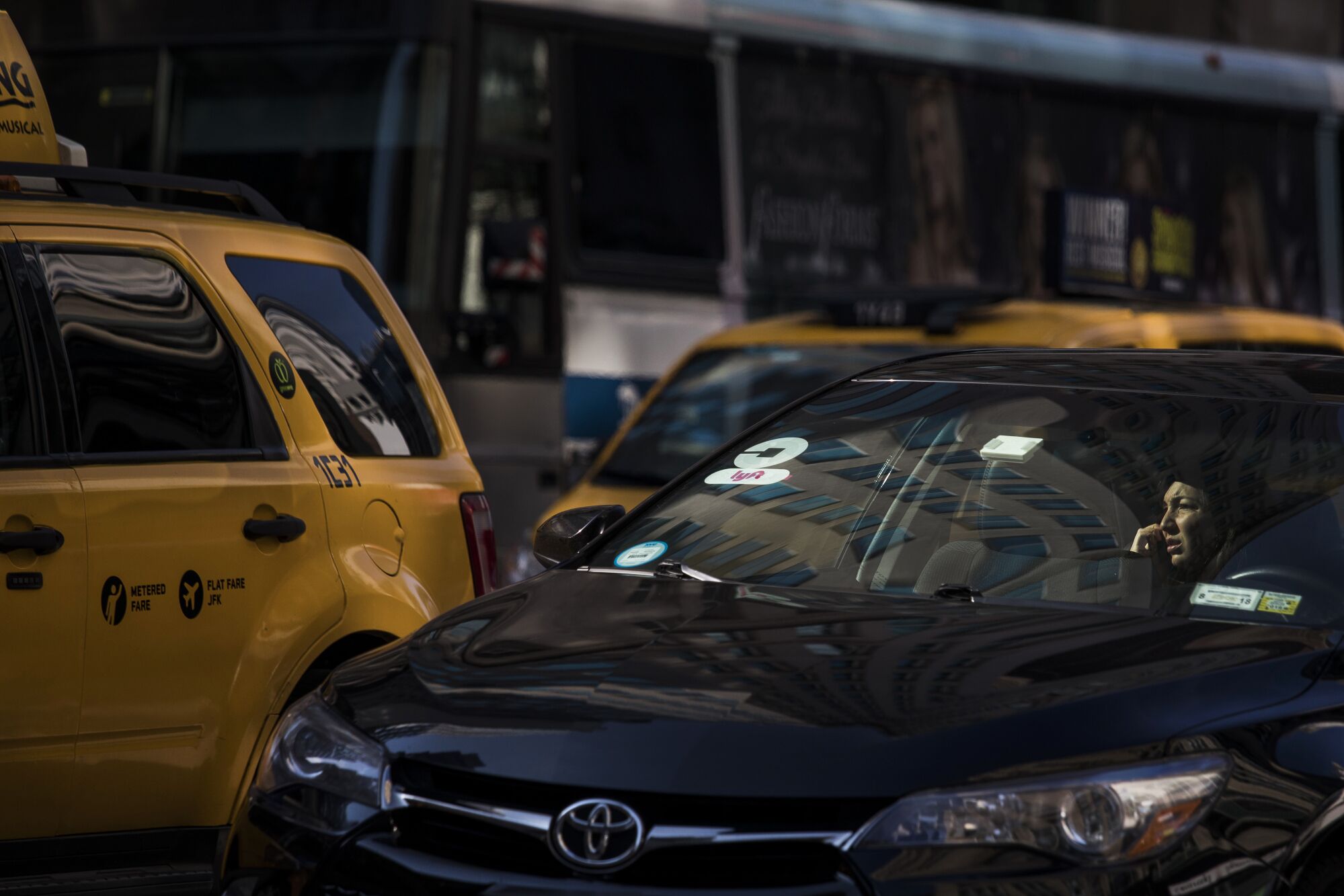
SOURCE – Bloomberg
New York City officials have reached a deal with Uber and Lyft to temporarily halt the introduction of new minimum-pay regulations in exchange for the companies agreeing to scale back driver lockouts. Under the agreement, Uber is required to reduce lockouts in August, while Lyft must increase its drivers’ apparent busyness.
- Both companies will also temporarily stop onboarding new drivers. If Lyft successfully makes its drivers appear busy enough by Labor Day, Uber will consider ending the lockouts permanently. However, if Lyft fails to meet this target, Uber may resume the lockouts.
- The practice of locking drivers out of their apps mid-shift has led to a significant decline in some drivers’ take-home pay, sparking protests from over 2,000 drivers at Uber’s New York City headquarters in July.
- The NYC Taxi and Limousine Commission stated that this deal provides the quickest relief to drivers without going through a lengthy rulemaking process. However, the agency is still prepared to introduce new pay rules if necessary.
DoorDash’s Strong Q2 Results Boost Investor Confidence 📈🍔💼
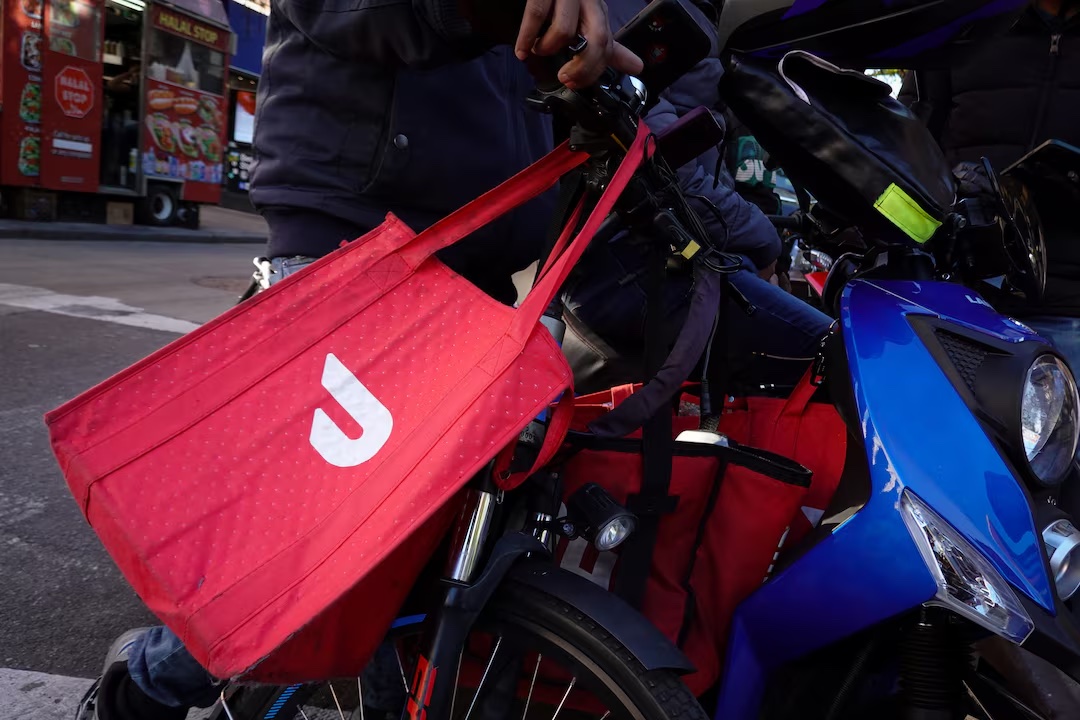
SOURCE – Reuters
DoorDash reported its second-quarter results, impressing some analysts, and provided an optimistic forecast for the third quarter, causing its shares to surge by more than 13% in after-hours trading on Thursday.
The company’s revenue soared 23% to $2.63 billion, surpassing expectations, while total orders increased by 19% to 635 million.
- DoorDash CFO Ravi Inukonda attributed the strong performance to resilient consumer demand despite concerns over slowing U.S. restaurant demand.
- The company’s expansion into new categories, such as grocery and alcohol delivery, and partnerships with retailers have helped it maintain growth and fend off competition from rivals like Uber Eats and Instacart.
- DoorDash also announced the renewal of its partnership with Chase, which will expand benefits for cardholders beyond just restaurant purchases.
Uber Partners with BYD to Increase EV Fleet Size 🤝🔌🚗

SOURCE – BBC News
Uber has entered into a multi-year agreement with Chinese EV maker BYD to bring 100,000 EVs to its global fleet. The partnership will incentivize Uber drivers to switch to electric cars by offering discounts on maintenance, charging, financing, and leasing.
- The deal will be initially rolled out in Europe and Latin America before expanding to other regions.
- Uber and BYD also plan to integrate BYD’s self-driving technologies into Uber’s platform.
- This collaboration comes amid slowing EV sales and increased import charges on Chinese-made EVs in major markets like the European Union.
- While some markets, such as China, have made significant progress in electrifying their rideshare fleets, with around 40% of vehicles being electric, other markets are struggling to keep pace due to the high costs associated with transitioning to electric vehicles.
FTC Probe into Surveillance Pricing Could Mean Implications for Rideshare and Delivery Companies 🔍💸🚗
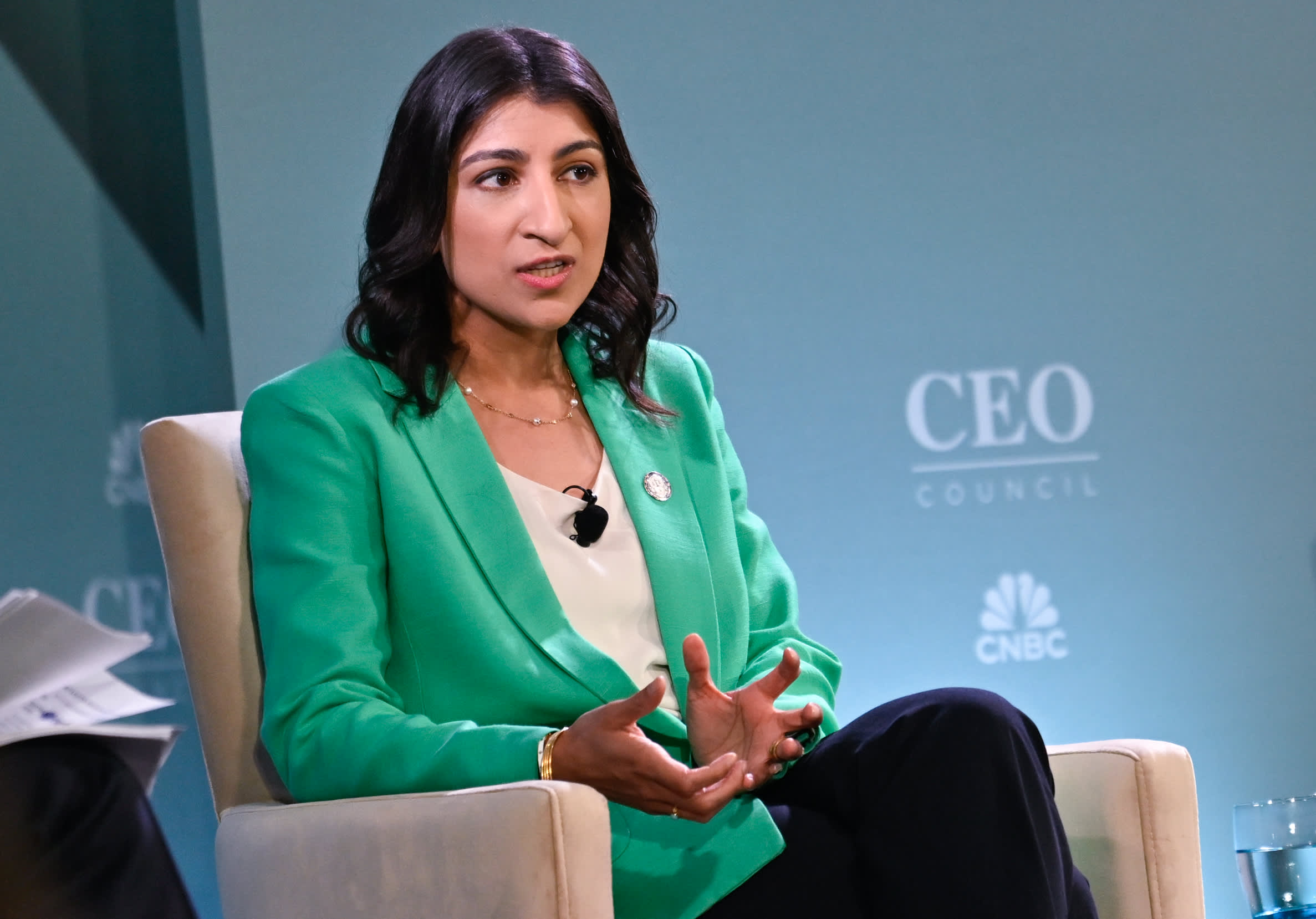
SOURCE – CNBC
The Federal Trade Commission (FTC) has launched an investigation into “surveillance pricing,” focusing on how companies use artificial intelligence and customer data to dynamically adjust prices.
This probe comes at a time when rideshare and delivery companies, such as Uber and Lyft, are increasingly relying on algorithm-based pricing models not only for rides and delivery fees but also for driver pay.
- The FTC’s investigation targets eight companies, including major players in the financial, consulting, and software industries, that advertise their AI and data-driven pricing tools. The agency is concerned that these practices may exploit consumer data and put privacy at risk while charging different customers different prices.
- As the FTC investigates “surveillance pricing,” rideshare and delivery companies that rely on algorithm-based pricing models may face increased scrutiny. Will this probe lead to significant changes in the industry, affecting both consumers and drivers?
Uber’s Recurring Tip Shaving Issue: Glitch or Systemic Problem? 🚕💸❓
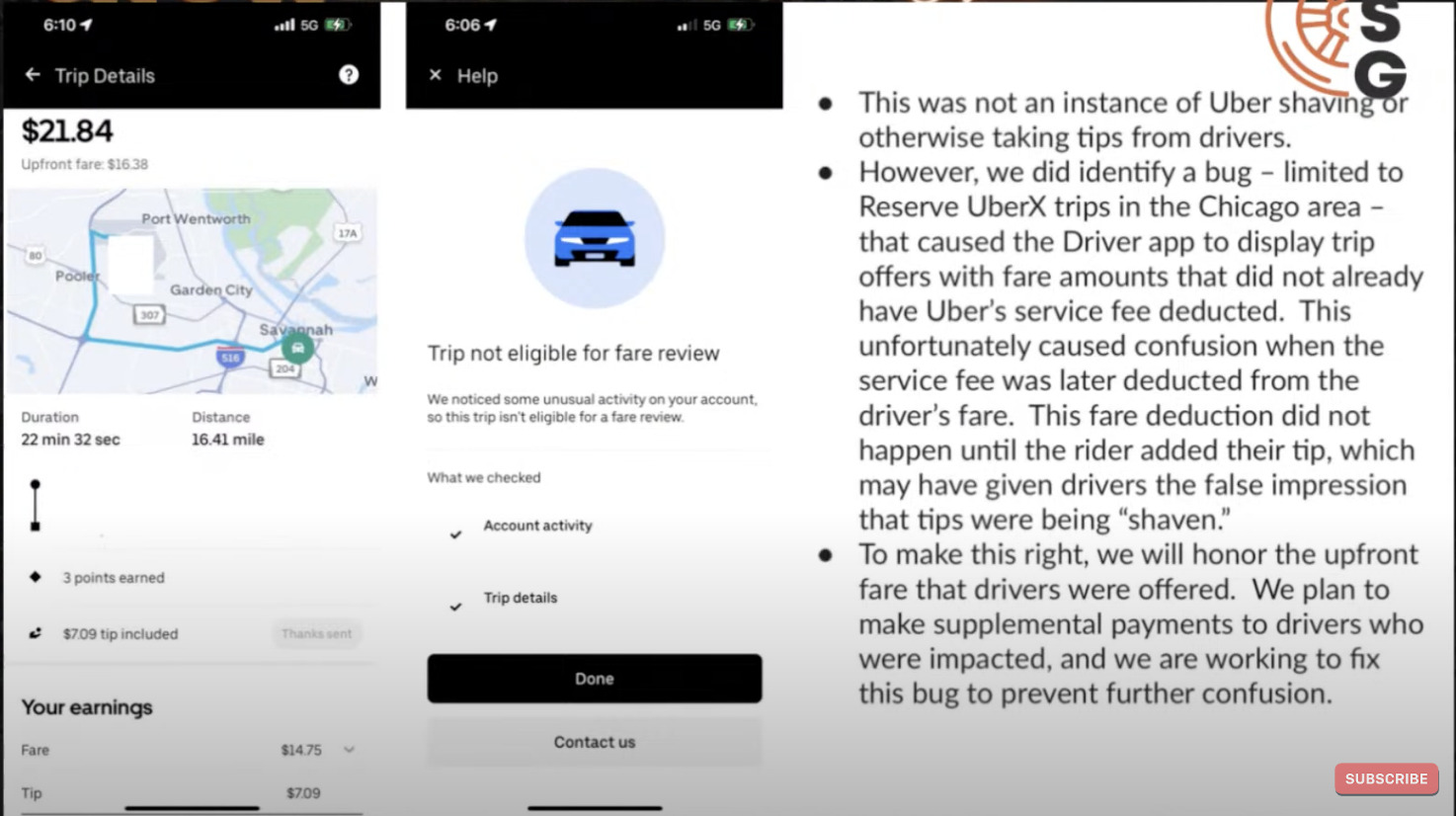
SOURCE – Show Me the Money Club
Also uncovered on this week’s episode of “Show Me The Money Club,” RSG Senior Contributors Sergio Avedian and Chris Gerace discussed recurring issues of “tip shaving” by Uber, where reported earnings seem to be inconsistently calculated, resulting in lower fares for drivers than initially quoted.
- Despite bringing this issue up with Uber six months ago and being told it was a bug that had been fixed, the problem has resurfaced.
- Sergio and Chris showed the audience specific examples of how Uber’s algorithm appears to reduce the fare amounts unfairly and how Uber’s support has been ineffective in addressing these concerns promptly.
- In March, Uber reimbursed its drivers millions of dollars after discovering that its EV incentive program had been incorrectly calculated.
QUICK HITS
An autistic passenger who finds joy in ride-sharing interactions was unexpectedly banned from Uber due to misunderstood behavior from drivers. A New York Times article details how he got reinstated on the platform, highlighting the importance of understanding disabilities in the world of rideshare. – NYT
Ashley Nunes, a research associate at Harvard Law School, examines the implications of the California Supreme Court’s decision to uphold Proposition 22, which classifies Uber and Lyft. – FINANCIAL TIMES
To pick up off-peak traffic, DoorDash is offering lunch specials and happy hour deals to entice customers to order during these hours. – RESTAURANT DIVE
Must Listen Or Watch RSG Content
Here are this week’s featured podcast episode and YouTube videos:
- RSG258: Rideshare In The AIR With Nikhil Goel From Archer
- Solo App Tutorial & Demo
- Uber Advantage Mode Starts BUT Will Drivers Really Earn 5% MORE?
- Is Uber Already Collecting Your Data For Driver Scores Everywhere?
- The Rideshare Guy en Español
- Make sure you Subscribe so you don’t miss out on future conversations and interviews!
